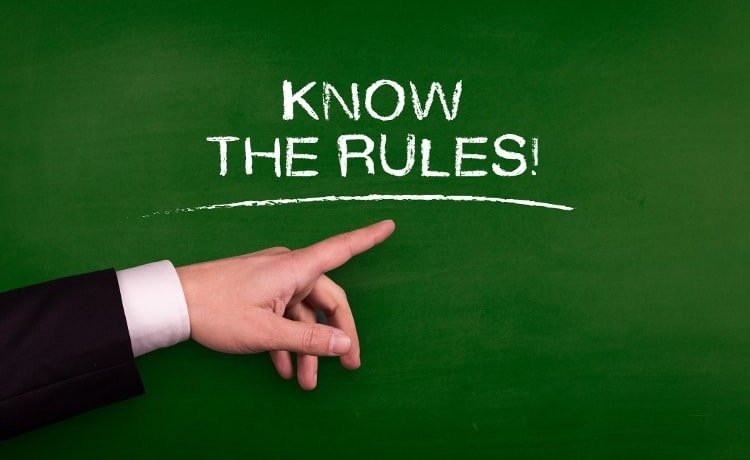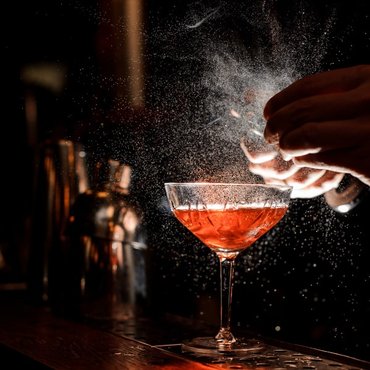Understanding the Over 80 Rule and Impaired Driving Charges in Ontario
Driving after consuming alcohol is one of the most heavily regulated criminal offences in Canada. Ontario imposes strict rules to protect public safety, and one of the most essential concepts for drivers to understand is the “Over 80” rule. This threshold — 80 milligrams of alcohol in 100 millilitres of blood (0.08) — determines when a driver may be criminally charged with impaired driving under the Criminal Code.
However, impaired driving laws have changed significantly over the past decade. Mandatory alcohol screening, updated penalties, and new enforcement standards mean many older explanations of the law are now outdated. This updated guide provides a modern, accurate, and practical breakdown of what “Over 80” means today, how police assess impairment, and what drivers should expect if charged.
Key Takeaways
-
In Ontario, having a BAC of 0.08 or higher triggers an Over 80 criminal charge.
-
Police can demand a breath sample even without suspicion of drinking (mandatory alcohol screening).
-
Roadside penalties now apply from 0.05 BAC, even if no criminal charge is laid.
-
A conviction leads to severe, long-term consequences, including a criminal record, license suspension, and an ignition interlock device.
-
Legal representation is critical — many over 80 charges are withdrawn due to technical and procedural errors.
What Does “Over 80” Mean Today in Ontario?
The
Criminal Code
makes it illegal to operate a motor vehicle with a BAC of 0.08 or higher. This is commonly called “Over 80.” But the law goes further. Police may also charge a person with impaired driving below 0.08 if their ability to operate a vehicle is affected — for example, if their driving is erratic, slow, or unsafe.
Ontario’s provincial rules
are even stricter. Drivers can face immediate roadside penalties beginning at 0.05 BAC, even if no criminal charges are laid.
Being under 0.08 is not a guarantee of safety.
This is why understanding what leads to a high BAC — and how it is measured — is crucial.
How Many Drinks Will Put You Over 80?
Alcohol affects every individual differently, and there is no universal number of drinks that is guaranteed safe. Metabolism, food intake, fatigue, medication, hydration, and body composition all influence BAC. The only reliable way to know your BAC is through a breath test.
Still, standard drink guidelines provide a rough estimate of how quickly a person might reach or exceed 0.08.
Standard Drink Equivalents in Canada
|
Type of Alcohol
|
Standard Serving
|
ABV
|
Counts as 1 Drink
|
|
Beer
|
12 oz / 341 mL
|
5%
|
✔
|
|
Wine
|
5 oz / 142 mL
|
12%
|
✔
|
|
Spirits
|
1.5 oz / 43 mL
|
40%
|
✔
|
Approximate Drinks to Reach 0.08 BAC
These estimates assume consumption over a relatively short period and should be treated cautiously.
|
Body Weight
|
Women (drinks to reach 0.08)
|
Men (drinks to reach 0.08)
|
|
50–57 kg
|
2 drinks
|
2–3 drinks
|
|
57–80 kg
|
2–3 drinks
|
3–4 drinks
|
|
80–90+ kg
|
3–4 drinks
|
4–5 drinks
|
Even with these estimates, many people underestimate their level of impairment.
As
Jeff Mass, Managing Partner at Mass Tsang LLP
, often warns clients:
“Feeling sober is not the same as being under the legal limit. BAC rises silently and unpredictably — and police rely on numbers, not feelings.”
Why Judgment Is the First Thing Alcohol Impairs
Alcohol impacts the brain unevenly, and judgment is one of the first functions to weaken. Even after one drink, people often underestimate their level of impairment and overestimate their ability to drive safely.
This mismatch between confidence and actual impairment can easily lead to an over 80 charge, even for drivers who believe they are “good to go.” Experienced drinkers are particularly vulnerable because tolerance affects perceived impairment, not BAC levels.
Impaired Driving in Ontario: What Counts as a Motor Vehicle?
Impaired driving offences apply to more than just cars. Under the
Criminal Code
and the Highway Traffic Act, “motor vehicle” includes:
-
Cars and trucks
-
Motorcycles
-
Motorboats
-
Snowmobiles
-
Off-road vehicles (ATVs, side-by-sides)
-
Some e-bikes and e-scooters depend on power and operation.
If the vehicle is motorized and driven in a public-accessible area, impaired driving laws likely apply.

What Happens If You Are Pulled Over?
Modern impaired driving enforcement is very different from what it was 10 years ago. Since 2018, police officers can demand a roadside breath test without needing suspicion that a driver has consumed alcohol. This is called mandatory alcohol screening, and it is lawful as long as the vehicle stop itself was lawful.
You can be required to take a breath test if
-
You were stopped at a RIDE program
-
You were pulled over for a traffic violation.
-
You admitted to drinking.
-
There is an odour of alcohol.
-
Alcohol containers are visible.
-
Your driving appeared abnormal.
Refusing the test results in a
criminal offence
equivalent to an impaired driving conviction — with the same penalties or worse.
As
Robbie Tsang, Managing Partner and Criminal Defence Lawyer
, notes:
“A refusal charge is treated just as seriously as an Over 80 charge — sometimes even more so. Comply with the test first; challenge the legality later with your lawyer.”
How Police Determine Whether You Are Over 80
If a roadside test registers a “Fail” (typically ≥100 mg%), the driver will be arrested and taken to the police station for official testing on an approved instrument such as the Intoxilyzer.
The official process includes:
-
Two breath samples were taken 15 minutes apart
-
Use of the lower of the two readings in court
-
Mandatory documentation and calibration checks
If officers do not follow the proper procedures — for example, failing to conduct the observation period or improperly handling the machine — the results may be challenged in court.
Penalties for an Over 80 Charge in Ontario
Regardless of whether criminal charges follow, Ontario imposes immediate penalties for a BAC of 0.05 or higher.
|
BAC Level / Behaviour
|
Immediate Penalty
|
|
0.05–0.079 (first time)
|
3-day licence suspension
|
|
0.05–0.079 (second)
|
7-day suspension + mandatory program
|
|
0.05–0.079 (third)
|
30-day suspension + increased sanctions
|
|
Fail (≥0.100)
|
90-day licence suspension + 7-day vehicle impound
|
These penalties occur even before court proceedings begin.
Criminal Penalties for Over 80 (Post-Bill C-46)
First Offence
|
Penalty
|
Amount
|
|
Fine
|
Minimum $1,000
|
|
Ignition interlock
|
1 year
|
|
Criminal record
|
Yes
|
|
Driving ban
|
Minimum 1 year
|
Second Offence
|
Penalty
|
Amount
|
|
Jail
|
Minimum 30 days
|
|
Interlock
|
3 years
|
|
Driving ban
|
Minimum 2–3 years
|
Third or Subsequent Offence
|
Penalty
|
Amount
|
|
Jail
|
Minimum 120 days
|
|
Interlock
|
Potential lifetime requirement
|
|
Driving ban
|
Up to a lifetime prohibition
|
Additional Consequences Most Drivers Don’t Expect
Many people focus only on fines and suspensions, but long-term consequences often cause the most disruption:
-
Difficulty crossing the U.S. border
-
Loss of professional licences (nursing, finance, HVAC, security, etc.)
-
Employment barriers
-
Social stigma
-
Home and life insurance complications
-
Immigration issues (for non-citizens)
An impaired driving conviction is not just a traffic matter — it becomes a permanent part of your criminal history.

Why You Need Professional Representation
Every DUI case is unique. Small details — such as timing, officer notes, testing errors, or Charter violations — can dramatically change the outcome of a case. A
lawyer experienced in impaired driving law
will know where procedural failures typically occur and how to challenge them.
Legal defence strategies may include:
-
Challenging the traffic stop
-
Challenging the breath demand
-
Challenging timing of tests
-
Challenging calibration or maintenance records
-
Challenging Charter rights violations
-
Raising a reasonable doubt on impairment
A strong legal strategy can lead to:
-
Charge withdrawal
-
Reduction to a non-criminal offence
-
Exclusion of breath test results
-
Acquittal after trial
-
Preservation of driving privileges
What to Do After Being Charged With Over 80
-
Write down everything you remember — from the initial stop to the breath tests.
-
Do not speak about your case with friends, coworkers, or on social media.
-
Keep all documents, including screening device results, release papers, and court forms.
-
Contact an impaired driving lawyer as soon as possible.
Your early actions can significantly influence your defence strategy.
How Mass Tsang LLP Helps Clients Charged With Over 80
A
dedicated DUI lawyer
manages all stages of your defence, including:
-
Reviewing police evidence
-
Requesting additional disclosure
-
Identifying procedural issues
-
Negotiating with the prosecutor
-
Representing you in court
-
Seeking the best possible outcome
Our team has defended hundreds of impaired driving cases, often achieving dismissals, reductions, or alternative resolutions that protect clients from lifelong consequences.
Brian Brody, Criminal Defence Lawyer Partner
, explains the firm’s philosophy clearly:
“Our role is not just to defend a charge — it’s to protect a person’s future. For many clients, a DUI is the most stressful moment of their lives. We guide them through every step with clarity and strategy.”
Protect Your Rights and Your Future
An Over 80 charge can feel overwhelming, but the situation is far from hopeless. The law is complex, and the outcome depends heavily on the decisions you make in the early stages. With experienced legal representation, many clients avoid criminal records, reduce penalties, or have their charges dismissed entirely.
Speak to a Toronto DUI Lawyer Today
If you have been charged with over 80, impaired driving, or refusing to provide a breath sample, the experienced
Toronto DUI Lawyer team
at Mass Tsang LLP is ready to help protect your rights and guide you through the legal process.
We understand how overwhelming a DUI charge can be — from the risk of losing your licence to potential criminal penalties. Our lawyers will thoroughly review the circumstances of your stop, the legality of the demand, the accuracy of the testing procedure, and any possible Charter violations that could strengthen your defence.
Contact us now to schedule a free, confidential consultation.
The sooner you speak with a lawyer, the more options you may have.
FAQ Section
What is the Over 80 rule in Ontario?
The Over 80 rule refers to the legal limit for blood alcohol concentration in Canada. If you operate a vehicle with a BAC of 0.08 (80 mg of alcohol in 100 mL of blood) or higher, you may be charged with a criminal impaired driving offence.
Can I be charged even if my BAC is below 0.08?
Yes. Police can charge you with impaired driving even below 0.08 if your ability to operate a vehicle is affected. Ontario also imposes immediate roadside penalties starting at 0.05 BAC.
Can police demand a breath test without suspicion in Ontario?
Yes. Under mandatory alcohol screening laws, Ontario police may demand a roadside breath test without needing suspicion that you consumed alcohol.
What happens if I refuse a breath test?
Refusing a breath test is a criminal offence treated the same as impaired driving. You may face a licence suspension, fines, a criminal record, and other penalties.
How accurate are breathalyzer tests in Ontario?
Breathalyzer devices are legally recognized as accurate, but testing errors, calibration issues, timing problems, or Charter violations can make the results challengeable in court.
What are the penalties for a first Over 80 offence?
A first Over 80 conviction carries a minimum $1,000 fine, a criminal record, a one-year driving prohibition, and mandatory ignition interlock participation.
Will I go to jail for an Over 80 charge?
Jail is not mandatory for a first offence but is required for repeat offences: at least 30 days for a second offence and a minimum of 120 days for a third or subsequent conviction.
What long-term consequences can an impaired driving conviction cause?
Long-term consequences may include employment issues, loss of professional licences, higher insurance premiums, difficulties entering the U.S., and immigration complications.
Can an Over 80 charge be dropped or reduced?
Yes. Charges may be withdrawn due to Charter violations, improper breath testing procedures, insufficient grounds for arrest, or other legal errors. Many cases are resolved without a conviction when properly defended.
Do I need a lawyer for an Over 80 charge in Ontario?
Yes. DUI law is complex and highly technical. A lawyer can challenge evidence, negotiate with the Crown, identify legal defences, and protect your rights and long-term future.








